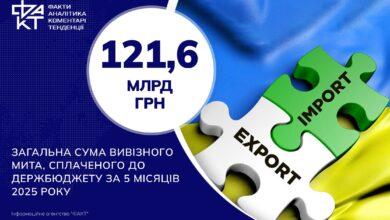EU restricts Ukrainian exports: country will lose $800 million by the end of 2025

The European Union is returning Ukraine to the old restrictions, and this is called “free trade”. From June 6, the regime enters into force, in which exports again find themselves in a cage of thirty quotas. This means that exports will be strictly limited – in terms of volume, goods, speed and money.
According to Deputy Chairman of the National Bank Serhii Nikolaychuk, Ukraine will lose about 800 million dollars by the end of 2025 just because of the return to the old restrictions.
“We are returning to the terms of the deepened comprehensive free trade with the European Union, which provides us with about 30 quotas. If the supply takes place only within the limits of these quotas, then of course it will have a significant impact on exports, primarily of grain,” he said.
Last year, a number of Ukrainian goods already worked under quota conditions – corn, eggs, sugar, poultry meat, sheep. However, these quotas were easily exceeded, and this proved that the Ukrainian product is competitive. This, in fact, became the problem. Once supplies began to pressure the European market, farm protests intensified, political pressure emerged, and the “temporary liberalization” quietly collapsed. Formally, no one forbids anything – they simply introduce quantitative restrictions, return duties, complicate logistics and launch procedures that destroy speed.
According to Nikolaychuk, the impact on the balance of payments will be significant, which will directly affect the foreign exchange market. He emphasized:
“The foreign exchange market is definitely not critical and can definitely be compensated by appropriate measures of the monetary and exchange rate policy of the National Bank to avoid negative effects on our ability to ensure the stability of the foreign exchange market and to ensure the transfer of inflation to the 5% target.”
But this is a restrained reaction. In fact, it is not about the hryvnia exchange rate, but logic: when key export sectors face restrictions, the motivation to increase volumes is lost. Business receives a signal: even if you survive the war, harvest crops, build logistics, there will be no place for you in Europe if you are too successful.
The National Bank of Ukraine admits that it was possible to export surplus products through the maritime corridor that opened up Asia and Africa. But these markets are weaker, distant, do not provide such margins as European ones, and do not replace the lost ones.





